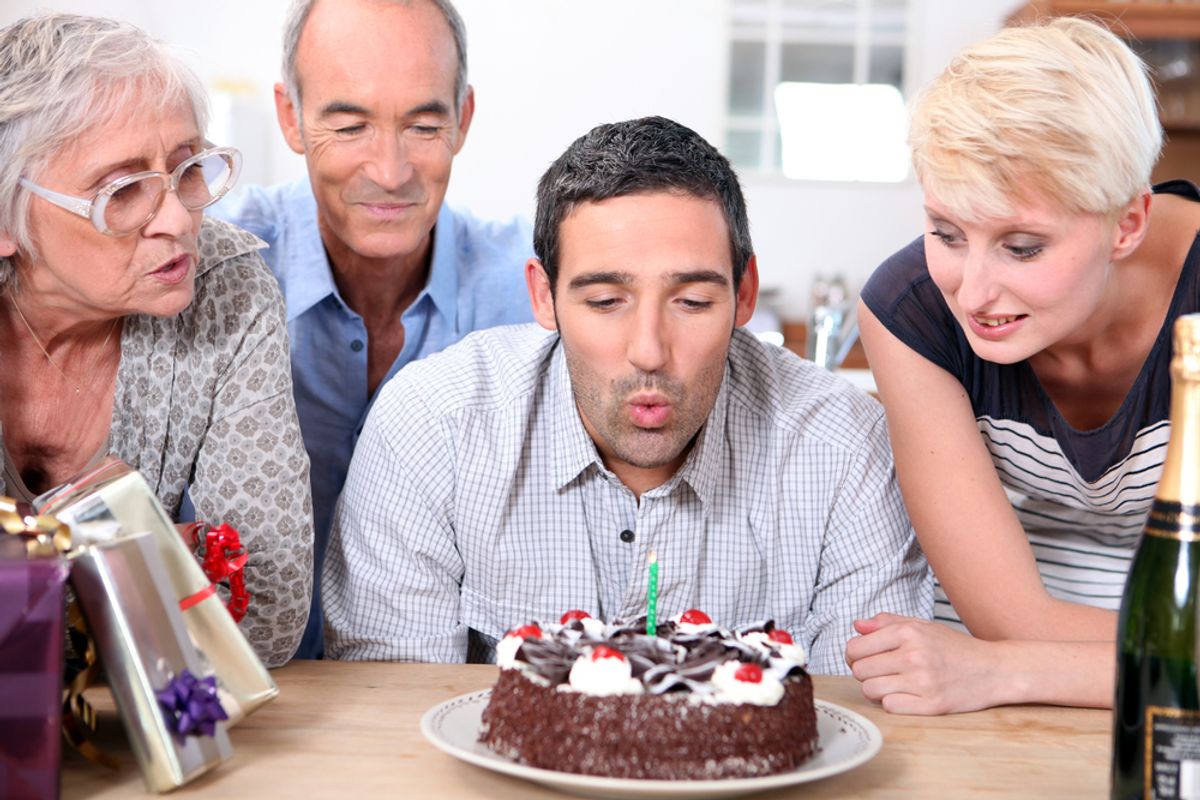It's hard to imagine how unhygienic candle-blowing or your family's jarring birthday overtures could possibly make eating cake more pleasurable. But, researchers at harvard and the University of Minnesota say it's exactly the singsong and ceremony of such rituals that can drastically change our perception of what we're eating — for the better.
In a collection of studies published in the journal Psychological Science, Kathleen Vohs, a psychological scientist at the Carlson School of Management at the University of Minnesota, and colleagues conducted a series of experiments to see how nonfunctional mealtime rituals affect our perception and consumption of certain foods.
In the first study, a group of participants were given chocolate and a set of specific instructions: "Without unwrapping the chocolate bar, break it in half. Unwrap half of the bar and eat it. Then, unwrap the other half and eat it."
The other participants were allowed to scoff down the chocolate bar unreservedly.
The findings revealed that the ritual-performing participants not only savored and rated the chocolate more highly, but were also willing to pay more for it than the second group.
Three other tests also reinforced the idea that "repeated, episodic, and fixed behaviors" seemed to have the greatest positive impact on food perception, while longer time delays between ritual performance and consumption also improved subjective tastes.
The only caveat is that we have some sort of "intrinsic interest," or personal involvement in the ritual, meaning that watching someone else methodically mix lemonade won't necessarily improve the flavor for us.
Vohs says the findings may also provide insight into the effects of rituals in other areas of medical research.
"We are thinking of getting patients to perform rituals before a surgery and then measuring their pain post-operatively and how fast they heal," she says.
(H/T: Eureka Alert)



Shares